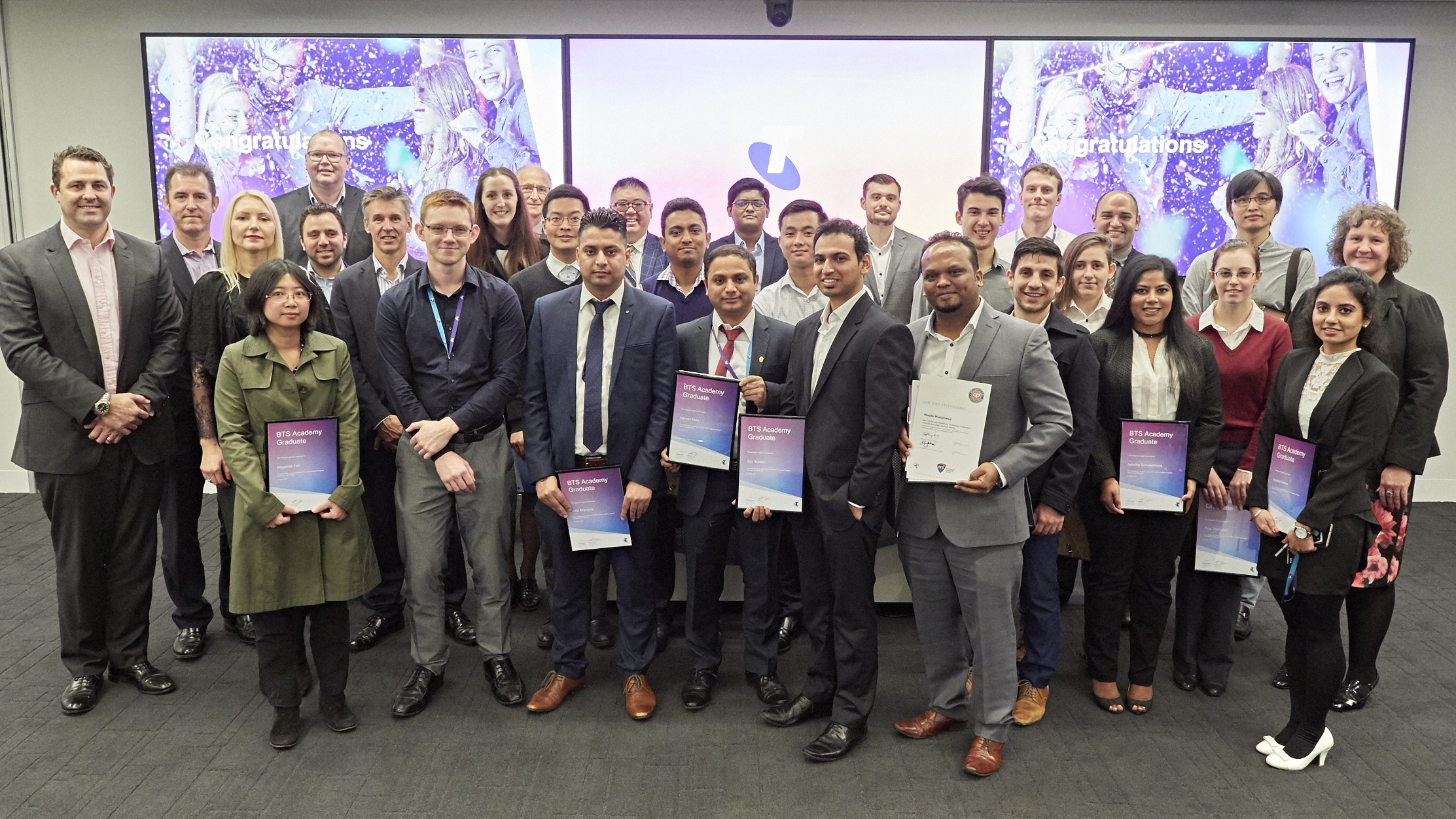Telstra’s Business Technology Services (BTS) Academy has commenced a new group of 25 future ICT professionals to form its second class, after receiving around 1000 applications.
Forty percent of the offers were made to females.
This comes following the placement of 24 academy graduates from the inaugural class into permanent roles at Telstra. Five of these former students have already been promoted to more senior roles within Telstra.
The three-year program includes an initial six months of intensive training in network and security with a focus on professional and technical training and certification requirements.
This is followed by a two-and-a-half year industry placement where students move into security or the network services business teams, and they are given the opportunity to graduate into engineering or consulting roles.
“They’re going really well,” said Christopher Smith, Executive Director of Business Technology Services at Telstra, on the recent graduates. “They’ve achieved the relevant certifications, including the ACS professional standard and are contributing to projects and delivering great outcomes for our customers.”
While only 13% of the applications received were female, 40% (10) of the new starters are females.
This is a significant increase from 24% female participation in the previous cohort, as the academy looks to close the gender gap in the ICT industry.
The program was created by Telstra as part of its efforts to address a skills shortage in the telco and technology industry and the future demands of a connected world.
Mr Smith said, “We’ve assessed what kind of skills will be needed for us to meet the evolving needs of our customers in the years to come, and we’re taking a multipronged approach to tackle this challenge.”
“Our recently introduced Business Technology Services (BTS) Academy is a three-year program initially aimed at training security and network specialists to deliver technology solutions for our business and enterprise customers. Future intakes will focus on other technical and professional areas.”
From the previous class, 12 students are now recognised as Certified Technologists and five are Certified Professionals against the Australian Computer Society (ACS) framework. The ACS has also run the assessment for participants against the Skills Framework for the Information Age (SFIA) framework.










